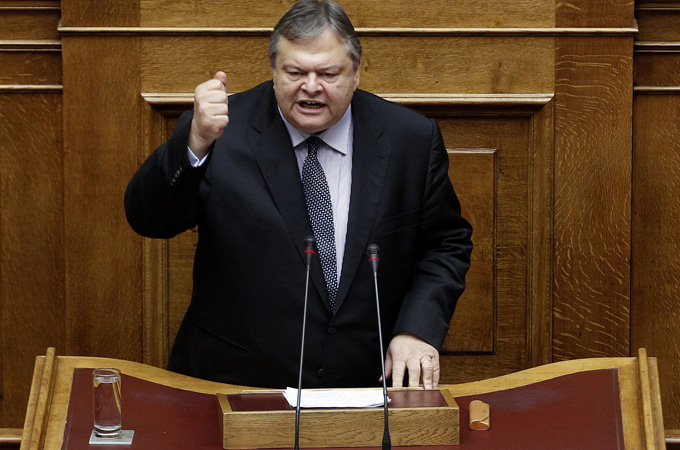Greek cabinet meet to discuss faster cuts
Government considers ways to accelerate austerity measures in order to secure further bailout funds.

 |
| The Greek Finance Minister Evangelos Venizelos has already cut pension and public sector salaries [Reuters] |
The Greek government is considering faster austerity measures to secure further bailout funds to help ease the country’s debt crisis.
An announcement on the measures agreed will be made later on Wednesday, a government spokesperson said.
Keep reading
list of 4 itemsBoeing hit with 32 whistleblower claims, as dead worker’s case reviewed
US imposes new sanctions on Iran after attack on Israel
A flash flood and a quiet sale highlight India’s Sikkim’s hydro problems
“Do we have to take additional measures? Yes we have to take supplementary measures … because of the recession, because of the difficult task, and the weakness of the central administration have not produced the required results,” said Evangelos Venizelos, the Greek finance minister, in parliament before the cabinet meeting.
He did not specify what the measures might be.
Greece has been under pressure from its international lenders to meet fiscal targets and slash the size of its bloated public sector, which has more than 750,000 staff in the country of 11 million people.
It has already pledged to suspend up to 20,000 civil servants on reduced pay as part of a plan to shed 150,000 public jobs through 2015.
Venizelos said that without the supervision of debt inspectors from the European Central Bank, the International Monetary Fund and the European Commission, collectively known as the troika, Greece would have “slipped off the fiscal track”.
The troika has been pressing the Greek government hard to adhere to the reforms it agreed to in return for bailout money.
In particular, the inspectors want it to move faster in reducing the size of the public sector.
Sharp cuts
Their quarterly review of the country’s progress is essential to the country’s international creditors releasing funds from $151bn bailout loan that has been keeping Greece afloat since last year.
Measures taken so far include pension and salary cuts in the public sector, and a series of tax hikes on everything from food and fuel to property and income.
The troika suspended its current review in early September amid talk of missed targets and delays, and Venizelos held two critical conference calls with them on Monday and Tuesday.
Brussels and Athens said progress had been made in the calls, and the troika heads are due back in the Greek capital next week giving a clear hint that the next batch of bailout cash amounting to $11bn is likely to be released.
The Greek debt crisis has continued to unsettle markets on Wednesday, with major European exchanges sliding in early trading after gains in the previous session.
Germany’s Dax index fell 1.4 per cent, France’s Cac 40 lost almost one per cent while the UK’s FTSE 100 slipped to 0.7 per cent.